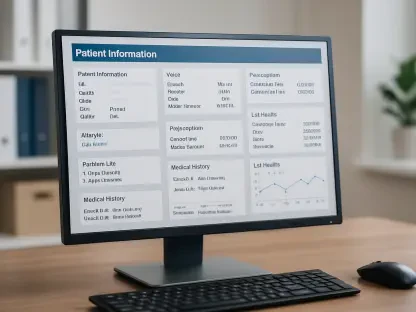The healthcare system in Kwara State, Nigeria, is grappling with a severe shortage of medical doctors, a predicament largely driven by the phenomenon known as ‘Japa’ syndrome. ‘Japa’ syndrome refers to the mass migration of Nigerian professionals, particularly in healthcare, seeking better opportunities abroad. The Executive Secretary of the Kwara State Hospital Management Board, Abdulrahman Malik, revealed that a critical shortfall exists, with only 89 doctors currently serving across state-run hospitals. The demand, however, ranges from 180 to 200 doctors. This situation has led to a precarious doctor-to-patient ratio of 1:5,000 in government health facilities, drastically below the World Health Organization’s recommended ratio of 1:600, putting immense strain on already stretched healthcare services.
Measures and Efforts in Place
Salary Adjustments and Incentives
In response to the alarming shortage of medical professionals, the government under Governor AbdulRahman AbdulRazaq has implemented measures aimed at retaining existing healthcare workers and attracting new ones. A key step has been increasing doctors’ salaries to align with federal pay scales, an initiative that has resulted in three doctors returning to their positions after previously resigning. Such salary adjustments are intended not only to offer financial incentives but also to demonstrate a commitment to valuing the professional contributions of medical personnel. Additionally, in an effort to bolster rural healthcare services, which face significant recruitment challenges, enhanced facilities are being deployed. These improvements intend to create an environment where medical professionals feel supported and able to thrive in their roles, ultimately ensuring better healthcare delivery to underserved communities.
Nurse Internship Programs
To tackle the nursing shortage exacerbated by ‘Japa’ syndrome, Kwara State has introduced an intern nurses program. This initiative aims to fill the gaps in patient care due to emigration. By providing structured training and professional development, the program seeks to cultivate a new generation of skilled nursing professionals who are more likely to embed themselves within the state’s healthcare infrastructure. This strategic move is seen as a crucial step in stabilizing the healthcare system, providing a buffer against the adverse effects of emigration. Furthermore, it aims to enhance the accessibility and quality of healthcare across both urban and rural settings. However, while such programs offer relief in the short term, the consensus among experts highlights the necessity for broader policy changes. These include addressing the socio-economic factors driving healthcare professionals to seek opportunities overseas, thereby creating a more sustainable healthcare workforce.
Challenges and Perspectives
Socio-Economic Factors
The root causes driving healthcare professionals to leave Kwara, and Nigeria at large, are multifaceted. Socio-economic challenges, including low wages, inadequate infrastructure, and limited career advancement opportunities, are significant contributors. Professionals pursuing careers abroad often cite these factors as primary motivators, seeking environments where their skills are better compensated and their careers have more potential for growth. While salary adjustments provide temporary relief, sustained improvements in working conditions, professional development opportunities, and healthcare infrastructure are critical. The government faces the task of creating a conducive environment that not only retains talent but makes returning attractive for those who have left. Successfully addressing these challenges will require comprehensive strategies and collaboration across sectors to improve economic prospects, safety, and career satisfaction within the state.
Future Directions and Solutions
The urgent need to address underlying issues leading to this professional migration cannot be overstated. Efforts focused solely on increasing pay may fall short if not coupled with broader systemic changes. Future directions should emphasize enhancing healthcare training, robust career development frameworks, and policies that promote economic stability and job satisfaction. Investing in technological advancements in medical facilities can also play a significant role, making the healthcare environment more efficient and attractive for professionals. Collaborative efforts between government entities, educational institutions, and private sectors are essential to develop programs that nurture local talent from the ground up. By doing so, Kwara can hope to build a healthcare system capable of meeting international standards and providing quality care to its citizens, ensuring a healthy, thriving community capable of retaining its skilled professionals.
Path Forward for Comprehensive Health Infrastructure
Despite the urgent initiatives implemented to curb the healthcare workforce’s exodus, Kwara State must consider further efforts to address the multifaceted causes behind the ‘Japa’ syndrome comprehensively. Developing policies that tackle the socio-economic disparities leading professionals to migrate will be crucial in fortifying the state’s healthcare infrastructure for the future. As Kwara moves forward, the focus should be on creating conditions that not only retain current healthcare workers but attract returnees from abroad. Establishing a sustainable and efficient healthcare system involves multi-sector collaboration, long-term investment, and innovations that align with international healthcare standards. Successfully addressing these challenges will require commitment and systemic change, allowing the state to advance in healthcare delivery and workforce stability.









